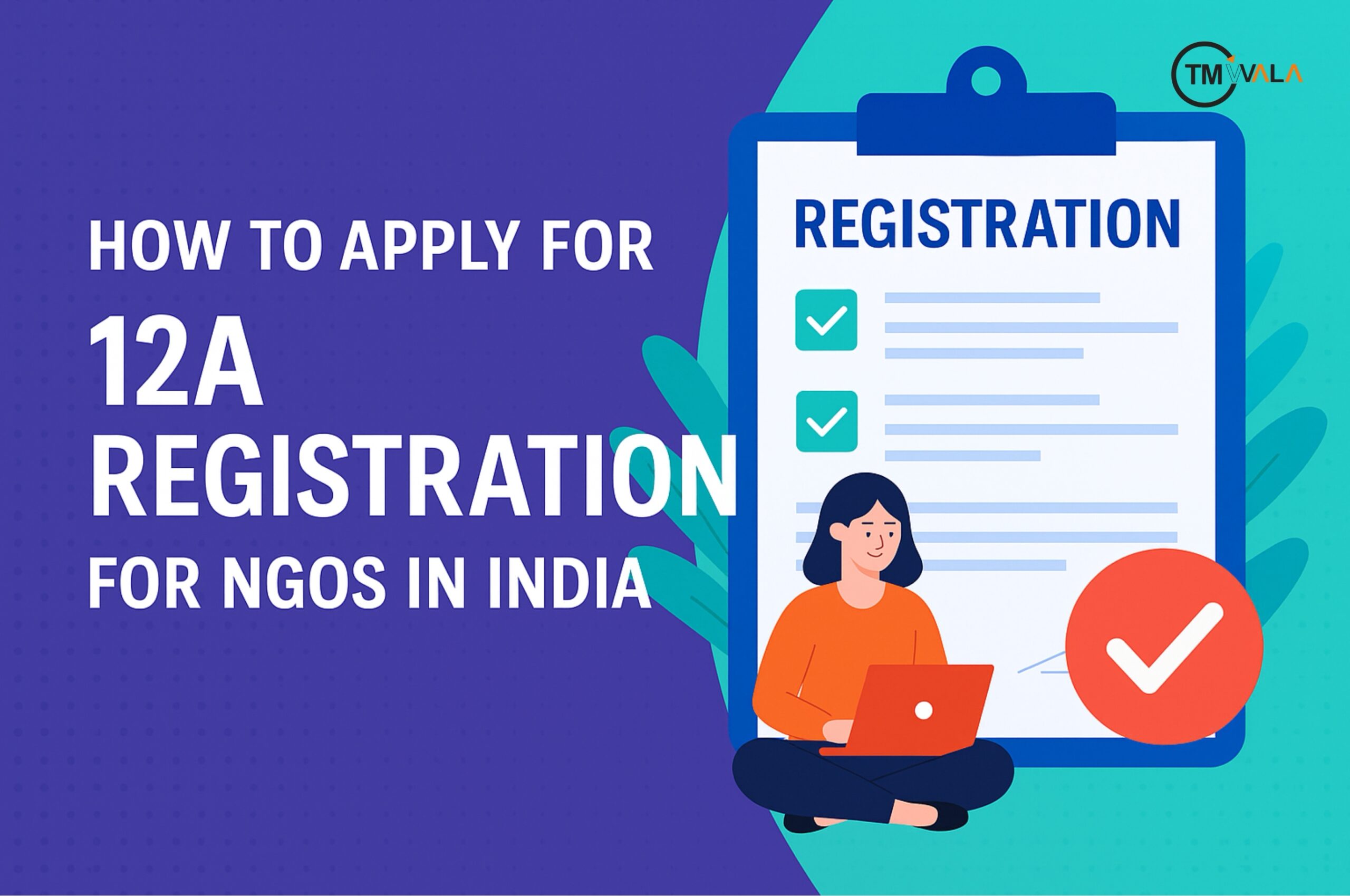
India hosts a vast network of non-profit and voluntary organizations working across social welfare, education, development, and public interest domains. For any NGO aiming to operate sustainably in 2025, securing tax-related approvals under the Income Tax Act is crucial. Two of the most significant certifications are 12A registration and 80G registration, both of which offer important financial advantages. These registrations not only reduce the tax burden on the organisation but also encourage donors to contribute, as 80G enables tax-deductible donations.
This article has been prepared to help new NGO founders, trustees, donors, and operational leaders understand the relevance of these registrations in the present regulatory and financial environment. It focuses on 12A registration while also highlighting the difference between 12A and 80G registration so that charitable organisations can make informed decisions. At every stage of this process, TMWala can help NGOs with compliance support, guidance, and documentation management, ensuring no critical requirement is overlooked.
12A registration allows trusts, Section 8 companies, and other non-profit entities to claim exemption from income tax on any surplus generated through their activities. Although NGOs work on a non-profit basis, they do generate income through donations, grants, and programs. Without Section 12A registration, this income becomes taxable at standard rates.
Section 12A applies to both charitable and religious institutions, as the law does not differentiate between them for tax exemption. Because of this, obtaining 12A approval soon after completing charitable trust registration in India is strongly recommended.
The benefits of 12A registration make it an essential compliance step for all NGOs and trusts:
To qualify for 12A:
To complete the application, NGOs must prepare the following documents required for 12A registration:
TMWala can help NGOs compile, verify, and structure these documents accurately, reducing the chances of errors or rejection during submission.
With the digitalised system introduced by the Income Tax Department, the entire 12A registration online process is carried out through the income tax portal. This has been designed to ensure transparency, speed, and easy record-keeping for both authorities and NGOs.
The step-by-step 12A registration process is as follows:
This section outlines a systematic approach to applying for 12A registration, enabling NGOs to comply with ease.
While 12A offers tax exemption to the NGO itself, 80G benefits donors by allowing them to deduct a portion of their donations from taxable income. Both registrations support financial sustainability but serve different purposes:
For most NGOs, obtaining 12A and 80G registration together is essential, as it strengthens credibility and encourages greater public funding.
Securing 12A registration is a crucial step for any NGO seeking long-term financial stability and regulatory compliance in India. By obtaining this exemption, organisations can ensure that their income is legally protected from taxation, allowing them to allocate more resources directly to charitable activities. When combined with 80G registration, NGOs also gain an added advantage in attracting donors who benefit from tax deductions. Understanding the eligibility criteria, preparing the required documents, and following the online application process enable NGOs to complete the procedure smoothly and establish stronger credibility. Ultimately, timely compliance with 12A and 80G provisions supports sustainable growth and enhances the organisation’s ability to achieve meaningful social impact.
Get started instantly
"*" indicates required fields

TMWala
Your one stop shop for all your business registration and compliance needs.
"*" indicates required fields
Choose your Entity Type
Non-MSME/ Large Entitie
Individual/ MSME/ Sole Proprietorships

₹9,000.00 Original price was: ₹9,000.00.₹3,999.00Current price is: ₹3,999.00.
Trademark Application @ ₹3999* (Premium Discounted Plan for MSME/Individual/Sole Proprietorships) Comprehensive
Government Fees
₹4500/-

₹9,000.00 Original price was: ₹9,000.00.₹3,999.00Current price is: ₹3,999.00.
Trademark Application @ ₹3999* (Premium Discounted Plan for Non-MSMEs/Large Entities) Comprehensive
Government Fees
₹9000/-
Choose your Entity Type
Individual/ MSME/ Sole Proprietorships
Non-MSME/ Large Entities
₹3,500.00 Original price was: ₹3,500.00.₹1,999.00Current price is: ₹1,999.00.
Government Fees
₹4500/-
₹3,500.00 Original price was: ₹3,500.00.₹1,999.00Current price is: ₹1,999.00.
Government Fees
₹9000/-
Choose your Entity Type
Individual/ MSME/ Sole Proprietorships
Non-MSME/ Large Entities

₹1,500.00 Original price was: ₹1,500.00.₹999.00Current price is: ₹999.00.
Trademark Application @ ₹999* (Basic Discounted Plan for MSME/Individual/Sole Proprietorships) Best-Selling, Economical & Easy

₹1,500.00 Original price was: ₹1,500.00.₹999.00Current price is: ₹999.00.
Trademark Application @ ₹999* (Basic Discounted Plan for Non-MSMEs/Large Entities) Best-Selling, Economical, Quick and Easy